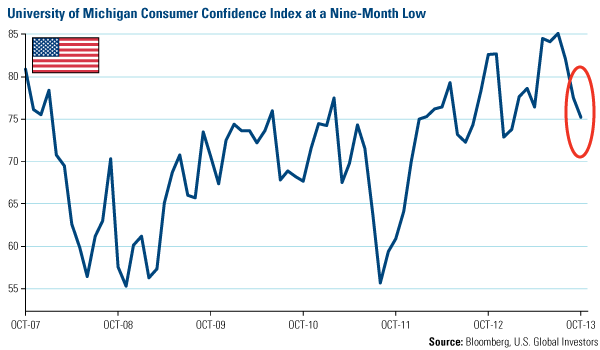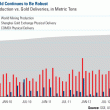The Economy and Bond Market Radar (October 14, 2013)
Treasury bond yields were little changed this week as the government shutdown has delayed numerous government economic reports, but that is not to say that it has been a quiet week. As widely expected, Janet Yellen was nominated to succeed Ben Bernanke as Fed Chairman. The Debt ceiling “game of chicken” thrashed about this week with some positive signs of a short-term resolution emerging by the end of the week. The very short end of the Treasury bill market was unusually volatile this week as some investors sold aggressively just in case a resolution on the debt ceiling could not be hammered out by the middle of next week and the U.S. experienced a default on maturing Treasury bills. Consumer confidence hit the lowest levels in nine months as higher interest rates and frustration with the politicians in Washington weighed on consumers expectations.
Strengths
- Janet Yellen was nominated to succeed Ben Bernanke as Fed Chairman. She is widely viewed as very capable and expectations are she would continue to follow the path the Fed has set.
- The government shut down and debt-ceiling impasse appears to be close to a resolution based on this week’s events.
- The European Central Bank president Mario Draghi indicated that further interest rate cuts were possible if needed.
Weaknesses
- Retail sales disappointed in September with numerous companies missing same store sales estimates.
- The weakness in retail sales may be driven by the weakness seen in consumer confidence indicators in recent months.
- Brazil raised interest rates by another 50 basis points to 9.50 percent, which is the fifth increase since April.
Opportunity
- Despite recent conflicting commentary, the Fed continues to remain committed to an overall accommodative policy and is unlikely to raise interest rates in 2013 or 2014.
- Key global central bankers remain in easing mode such as the European Central Bank, the Bank of England and the Bank of Japan.
- If the shutdown continues for much longer, the Fed would be less likely to reduce its quantitative easing program.
Threat
- Inflation in some corners of the globe is getting the attention of policy makers and may be an early indicator for the rest of the world.
- Trade and/or currency “wars” cannot be ruled out which may cause unintended consequences and volatility in the financial markets.
- The recent bond market sell off may be a “shot across the bow” as the markets reassess the changing macro dynamics.














